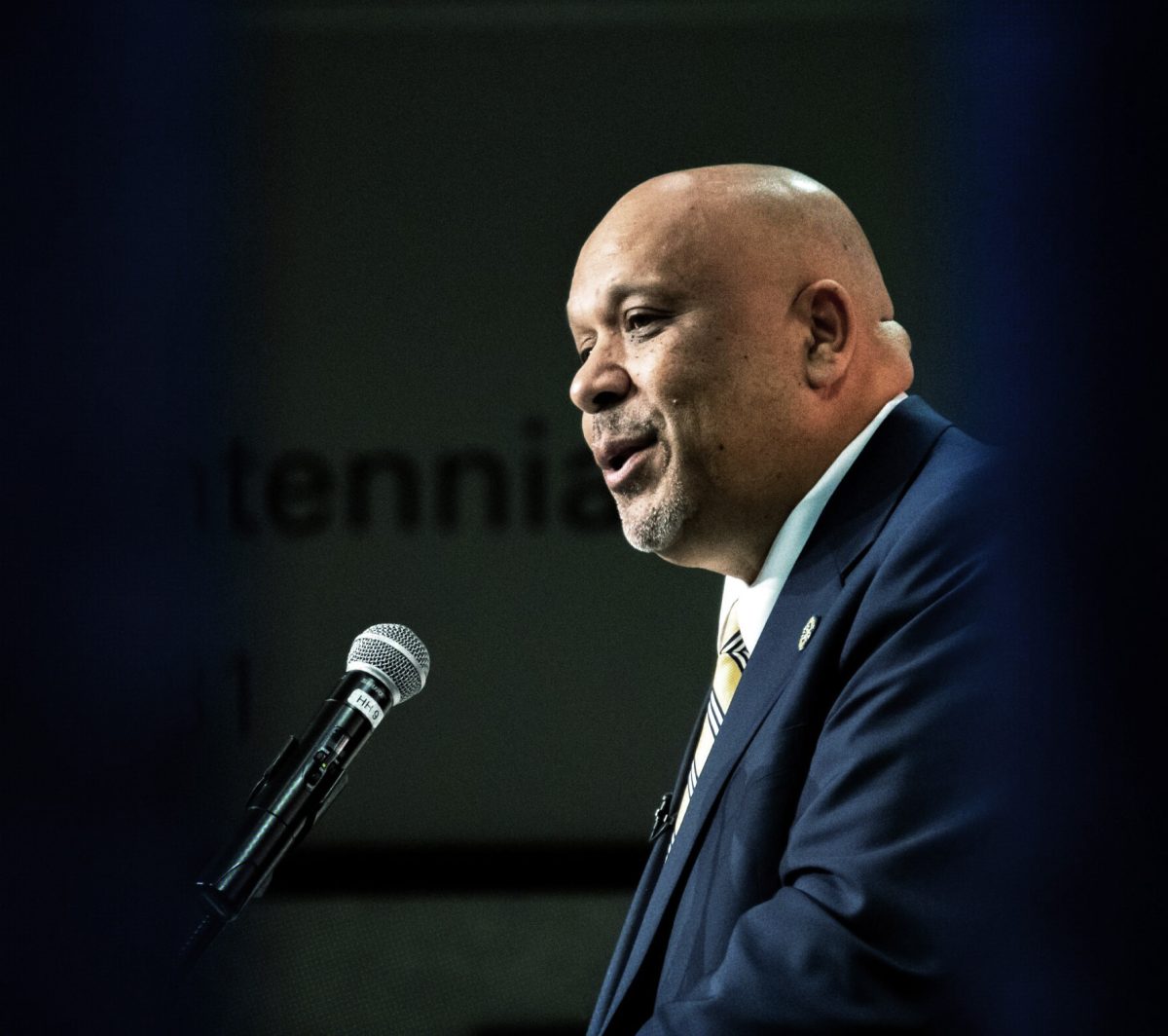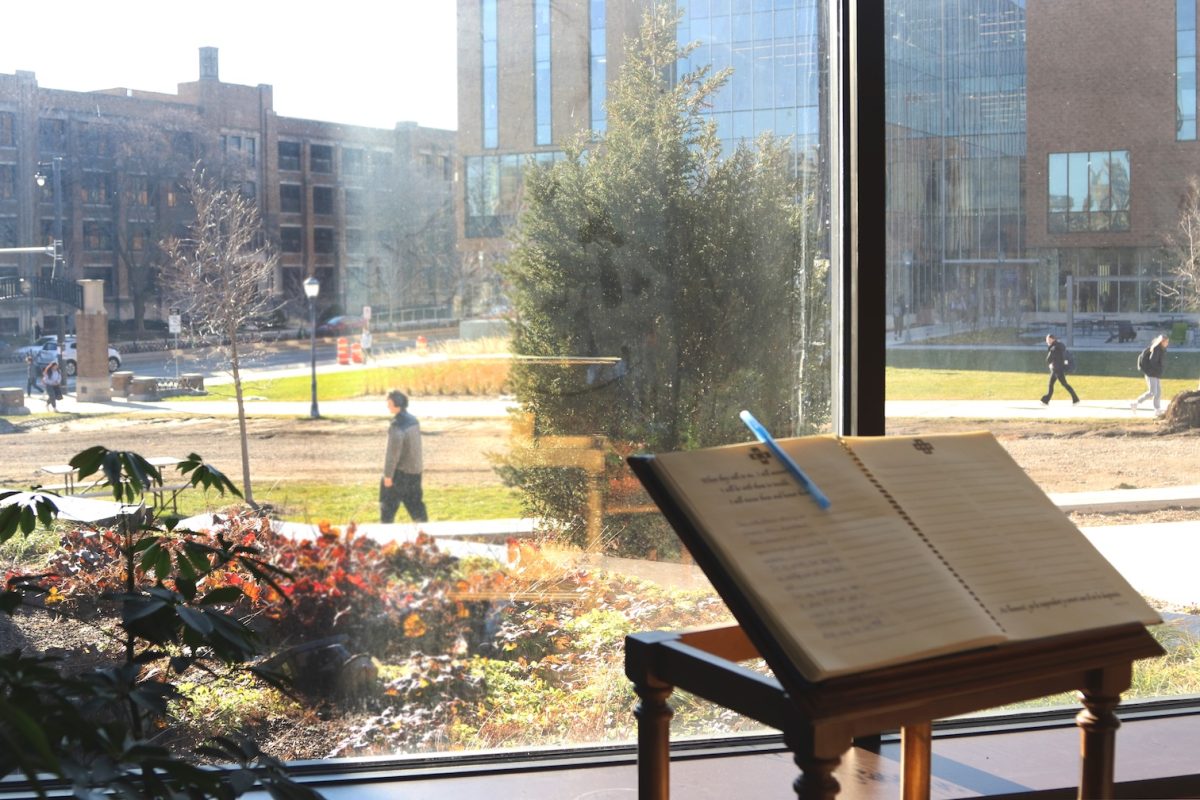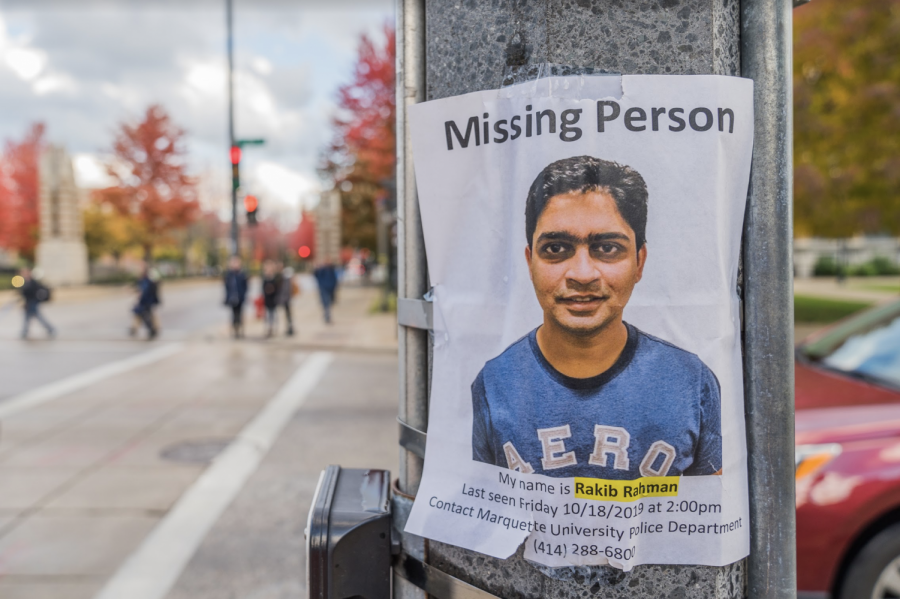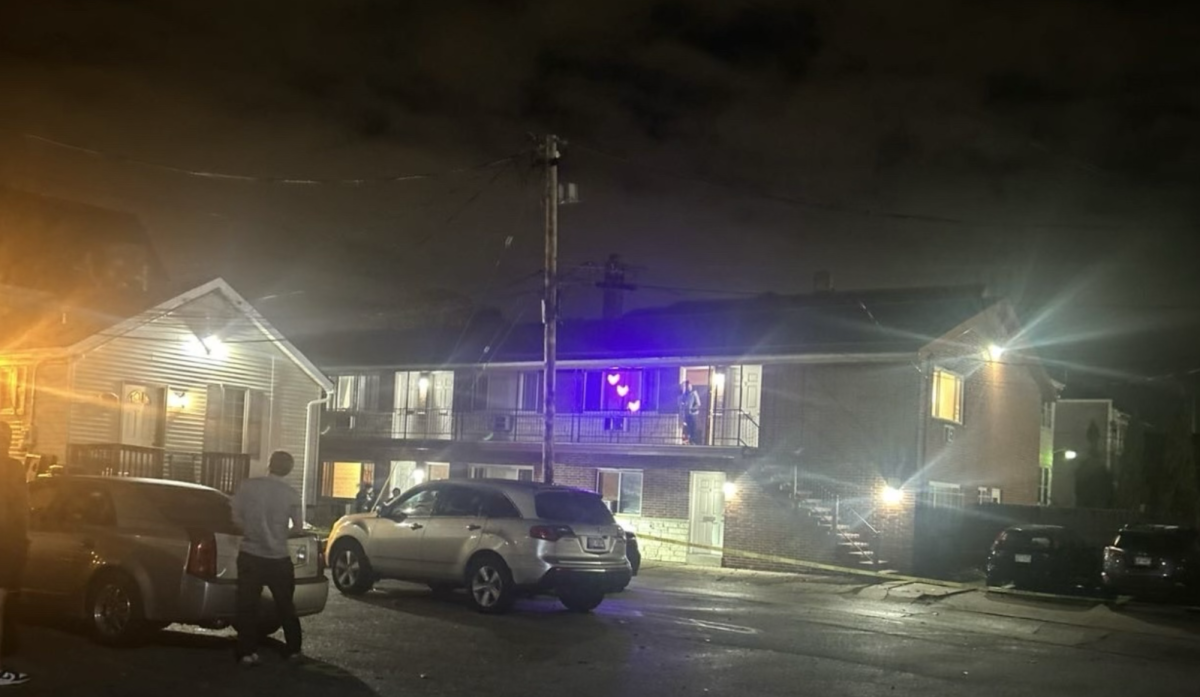While a student remained missing for nearly five days, Marquette University Police Department and university administration failed to publicly release information about the student and situation.
Rakib Rahman, a doctoral student in electrical and computer engineering, went missing Oct. 18 at 2 p.m. and was reported missing by a family member the day after. The student returned to his family this past Wednesday.
While the department received community tips and other information that aided in its understanding of the case, it should have actively sought community involvement in locating Rahman. His disappearance understandably upset the student’s close friends and family, along with other members of the Marquette community.
University spokesperson Lynn Griffith said in an email that MUPD determined early on their investigations that the situation was a family matter and was never meant to be public.
Marquette students, staff and faculty were welcomed back from fall break with posters of Rahman all around campus, leaving them with feelings of uneasiness. The matter was not kept private by the students who knew Rahman, so it should not have been kept private by the department investigating his disappearance.
Whether the department felt confident that Rahman was safe, it had an obligation to involve the community.
The department must take every measure to locate a missing person, including sharing their photo and other relevant information with the campus community.
MUPD did not publicly release information about Rahman’s disappearance because he was not classified as a critical missing person. To meet this classification in Milwaukee, someone must be a military veteran, victim of foul play, under 11 years old, under 18 years old with a minor child in their custody or a person with a disability or medical condition that could harm them.
Griffith said MUPD determined that none of those factors applied to Rahman’s case, and she said the student left on his own without notifying his family. She added that MUPD would release information and photos of a student in the event of a critical missing person’s investigation, Griffith said.
Despite Rahman not being classified as a critical missing person, MUPD and the university should have released a statement addressing the situation. Both entities have the platform and ability to provide legitimacy to an alleged situation and to alleviate potential panic on campus.
MUPD followed procedures set forth by law, but the department has the ability to go beyond them and show dedication to the Marquette community regarding any missing person case, not just those deemed critical missing.
When Rahman disappeared, a group of engineering students spread the word about the situation while MUPD and the university did not publicly release any pictures or information about Rahman. The university acknowledged the case only when contacted by the Marquette Wire for additional information.
The responsibility to publicize information about missing students should not fall onto the students’ peers alone.
Marquette students, faculty and staff had no information about the situation or any way of knowing if the posted flyers of Rahman were legitimate, leaving them to speculate the details of the situation and worry about a potential threat to campus.
An MUPD statement to the Marquette community about missing persons could proactively reduce campus stress. If concerned about privacy, the department does not need to release family information and other personal details. Releasing a picture of the student with a statement clarifying that MUPD did not believe the student or campus was in danger would have been sufficient.
Regardless of the differing levels of uncertainty and severity with missing person situations, MUPD and the university have a responsibility to communicate and legitimize such situations for the safety of missing persons and the community.













Cynthia • Oct 30, 2019 at 11:28 pm
While I understand and appreciate the concerns of this article’s writer, this “missing” person was a grown man (Doctoral student). I would guess that he is at minimum 24 or 25 years old. If he walked away from a situation, it was an adult decision. Furthermore, I think that the criteria set forth in order to escalate a missing person situation sounds reasonable. Based on this writer’s opinion piece, the person placing the missing person report should be able to escalate a situation based on their feelings of immediacy. If a person was trying to get away from an abusive relationship, the person filing the missing person report could coerce police to find a person, even if they didn’t want to be found. That’s not the way the system is meant to work.
Tammy Caley • Oct 29, 2019 at 7:24 pm
This article is perfectly written. As a parent of a MU student, I had the same response. Was this student in danger? Was there a danger to other students and faculty? If the student was not in danger, what would be the factors that a student would feel such pressure, that they would walk away from everything? Why wasn’t the police department providing more details. In a situation like this, they do owe more information to the MU greater community.
I would love a follow up article that speaks to student pressure like this. Perhaps from a student from another country, in a high pressure program, like Engineering. If there couldn’t be a follow up with the particular student in the article above, maybe the article could perhaps be tied in some way to this student. I am wondering what were the repercussions of walking away from everything? This is very interesting.
Thanks for the great article!